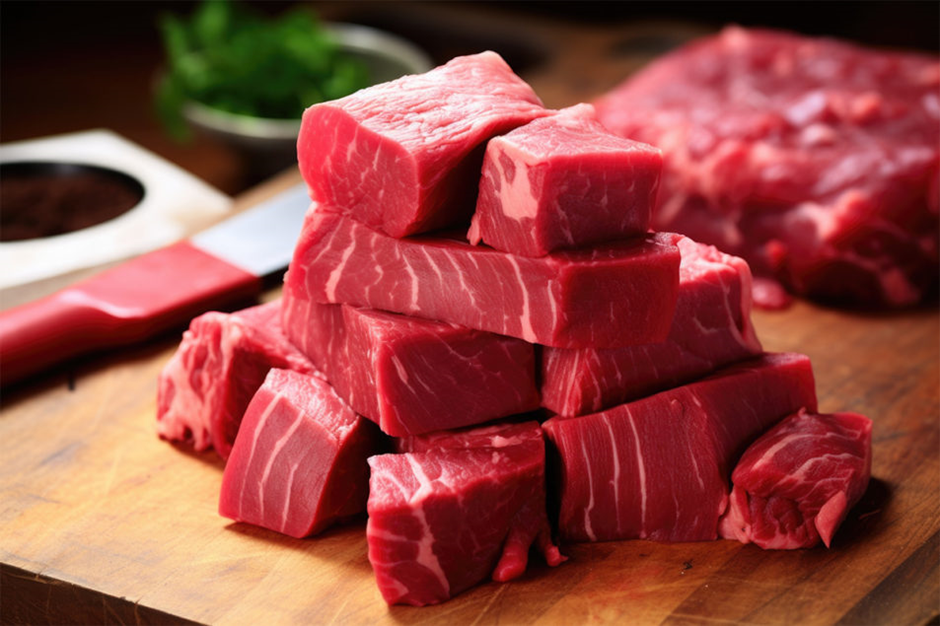The processing of halal meat involves a series of carefully regulated steps designed to meet Islamic dietary standards. Understanding these processes is crucial for consumers, businesses, and halal meat suppliers alike. This article explores how halal meat is processed to ensure it adheres to dietary standards and remains both ethically and legally compliant.

Understanding Halal Meat Processing
What Defines Halal Meat?
Halal meat is defined by its adherence to Islamic dietary laws, which outline specific requirements for the slaughtering and processing of animals. The term "halal" means "permissible" in Arabic, and it signifies that the meat is allowed under Islamic law. The halal processing of meat involves not only the way animals are slaughtered but also how they are handled and prepared thereafter.
The Halal Slaughtering Process
Preparation and Handling
Before slaughtering, animals must be treated with respect and care. They should be kept in clean, comfortable environments and should not be subjected to undue stress. Ensuring the animal's well-being is essential for maintaining the quality of the meat and adhering to halal principles.
Slaughtering Procedure
The actual slaughtering process is a critical component of halal meat processing. It involves the following steps:
Invocation: The name of Allah (God) is invoked by reciting a specific prayer before the animal is slaughtered. This step underscores the religious significance of the act and seeks divine blessing.
Method: The animal is slaughtered by a swift, deep incision to the throat, cutting the jugular vein and carotid artery. This method is intended to ensure a quick and humane death, allowing the blood to drain from the carcass.
Draining Blood: Halal meat processing requires that as much blood as possible is drained from the carcass. Blood is considered impure in Islamic dietary laws, and its removal is crucial for ensuring the meat is clean and suitable for consumption.
Post-Slaughter Processing
Cleaning and Inspection
After slaughtering, the carcass undergoes thorough cleaning to remove any residual blood and impurities. This step is followed by a rigorous inspection process to ensure that the meat meets halal standards and is free from contaminants. Inspections are conducted by trained professionals to verify compliance with both halal guidelines and food safety regulations.
Packaging and Labeling
Halal meat must be packaged and labeled appropriately to maintain its halal status throughout the supply chain. Packaging is done in a way that preserves freshness and prevents contamination. Labels clearly indicate that the meat is halal, providing assurance to consumers and businesses. This transparency is essential for halal meat suppliers to build trust and credibility with their customers.
Compliance with Dietary Standards
Halal Certification
To guarantee that meat processing adheres to halal standards, halal meat supplier often obtain certification from recognized bodies such as the Majlis Ugama Islam Singapura (MUIS) in Singapore. This certification involves a comprehensive audit of the processing methods and facilities to ensure compliance with Islamic dietary laws.
Adherence to Local Regulations
In addition to halal certification, suppliers must comply with local food safety and hygiene regulations. In Singapore, this includes adhering to guidelines set by the Singapore Food Agency (SFA). Compliance with these regulations ensures that halal meat not only meets religious standards but also adheres to high food safety standards.
Role of Halal Meat Suppliers
Ensuring Quality and Integrity
Halal meat suppliers play a crucial role in maintaining the quality and integrity of halal meat. They are responsible for sourcing meat from reputable farms, ensuring proper handling and slaughtering procedures, and managing the supply chain to uphold halal standards. Suppliers must be diligent in their practices to ensure that every step of the processing adheres to halal requirements.
Consumer Confidence
The involvement of reputable halal meat suppliers helps to build consumer confidence in halal products. By adhering to stringent processing standards and obtaining certification, suppliers provide assurance to consumers that the meat they purchase is genuinely halal and meets the highest standards of quality and ethics.
Conclusion
The processing of halal meat involves a meticulous series of steps designed to meet Islamic dietary standards. From humane slaughtering practices to rigorous post-slaughter inspections and proper packaging, each stage is critical to ensuring that the meat is halal and of high quality. Halal meat suppliers play a key role in this process, ensuring that all aspects of meat processing adhere to halal requirements and comply with local regulations. Understanding these processes helps consumers and businesses appreciate the importance of maintaining halal standards and supports the integrity of halal meat in the global market.
About us
HFoods is Singapore's premier one-stop halal food provider, offering a comprehensive range of halal-certified products. From seasoned meats to fresh frozen cuts, we ensure the highest quality and compliance with halal standards. Our services include portion cutting, marination, and customized packaging to meet your unique needs. At HFoods, we are committed to excellence, reliability, and customer satisfaction.
Website - https://hfoods.com.sg/














